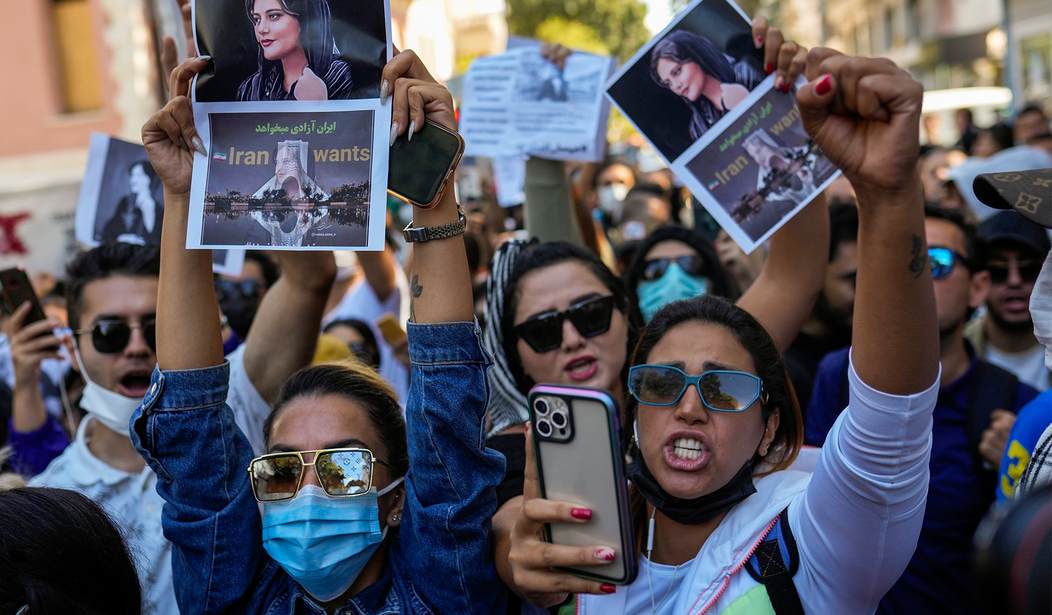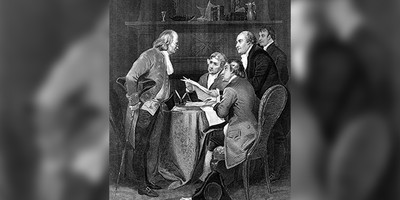Opinions vary regarding the current status of the nationwide uprising that began in Iran last September, following the death of Mahsa Amini at the hands of Tehran’s “morality police.” While it is generally understood that the protests have tapered off, many activists continue to share videos to social media which suggest that slogans like “death to the dictator” remain in public circulation in a number of cities and towns.
Of course, Iranian authorities would have the world believe that the movement for regime change has been well and truly broken, and the status quo fully restored. But this is best understood as wishful thinking, which aims to promote the idea that external pressure on the ruling system is essentially pointless because its hold on power is unbreakable.
Unfortunately, Western policymakers have been taken in by that argument in the past, and have even offered significant concessions to the clerical regime because of it. But dissenting voices have always stood against that course of action, and their numbers have swollen in recent years.
The recent uprising has been described as the greatest threat to the regime’s hold on power since the 1979 revolution against the dictatorship of the Shah, and this has motivated some of the most urgent calls for a revision of Western policy toward the clerical regime. Last month, more than 100 former high-ranking government officials from the United States, Europe, and Latin American signed a letter urging the current leadership of each represented country to adopt a more assertive posture and “stand with the Iranian people in their quest for change.”
Referring both to the domestic unrest and the ensuing regime crackdowns which killed at least 750 protesters and landed 30,000 others in jail, the letter proclaimed: “We believe it is time to hold the leadership of the Islamic Republic of Iran to account for its crimes.”
Recommended
Regardless of what anyone thinks about the current status of the nationwide uprising, the crimes in question have continued right up to the present day. Entities like Amnesty International and the United Nations Human Rights Council have issued a number of statements in recent weeks about a surge of executions by the regime, which is no doubt intended to intimidate the public into compliance. By most estimates, Iran’s judiciary has already executed more than 300 prisoners since the start of 2022, with 144 of those coming in the month of May alone.
If Western powers fail to hold the regime accountable for these mass killings, they will tacitly encourage it to accelerate this and other repressive practices in the face of future crises.
There are myriad reasons to be alarmed by this prospect. Iran’s status as the country with the world’s highest rate of executions per capita is sufficiently concerning. Annual tallies of the regime’s victims invariably include political prisoners, some of whose arrests were motivated in whole or in part by their Western citizenship.
Since the uprising broke out last September, the judiciary has executed at least seven people for their participation in protests, relying on notoriously vague and arbitrary charges like “spreading corruption on Earth.” Three of these executions were carried out on one day in May, after which point detention was extended for several other arrested protesters. This lends credence to the notion that the ruling clerics are delaying proceedings for some of these cases until the eyes of the world turn their focus elsewhere.
It is, therefore, vital that attention continues being re-trained on Tehran’s crackdowns on dissent and its other malign activities. To its great credit, the organized opposition is making concerted efforts to do just that. Toward that end, on July 1, tens of thousands of people from throughout the world will converge on Paris to hold demonstrations in solidarity with their compatriots back in Iran, and to reiterate their longstanding calls for Western governments to adopt more assertive policies, with an eye toward supporting the fight for regime change.
The participants can be expected to voice a number of concrete recommendations, including the expansion of targeted sanctions, the pursuit of charges at the international criminal court for Iranian officials involved in crimes against humanity, and universal designation of the suppressive Islamic Revolutionary Guard Corps as a foreign terrorist organization.
The gathering will also represent to the world an alternative to Iran’s existing theocratic regime, in the form of the National Council of Resistance of Iran (NCRI). That democratic coalition is intimately connected to the recent uprising and its likely future iterations, via its main constituent group, the People’s Mojahedin Organization of Iran (PMOI/MEK).
Even Iranian regime officials and state media outlets have acknowledged the role of the MEK's “Resistance Units” in domestic unrest, while numerous Western policymakers, including the signers of last month’s letter, have affirmed their support for the “ten-point plan” authored by Maryam Rajavi, the NCRI’s President-elect to serve as transitional president in the wake of the mullahs’ overthrow.
That plan calls for free and fair elections, separation of religion from the state, and establishment of legal safeguards on the rights of women and minorities. It also outlines a future of peaceful relations with the region and the world, by an Iranian democratic republic that will have abandoned the clerical regime’s nuclear ambitions.
There should be no question in the minds of any Western citizen or policymaker about the strategic value of this plan. The only question that may linger in the minds of many is whether the plan’s implementation is feasible. The mullahs, of course, would have us believe that it is not. But it seems clear that the countless Iranians, both at home and abroad, who are working to keep alive last year’s uprising would beg to disagree.
There are, however, worrisome reports that the Iranian President Ebrahim Raisi, whose role in the 1988 massacre of 30,000 dissidents is beyond dispute, asked his French counterpart Emanuel Macron to ban the huge rally. That would be a shameful breach of France’s commitment to the very values for which millions of Europeans gave their lives. Mr. Macron should take a clear stance that he will not allow the murderous mullah regime to expand its suppressive tentacles beyond Iran’s borders.

























Join the conversation as a VIP Member